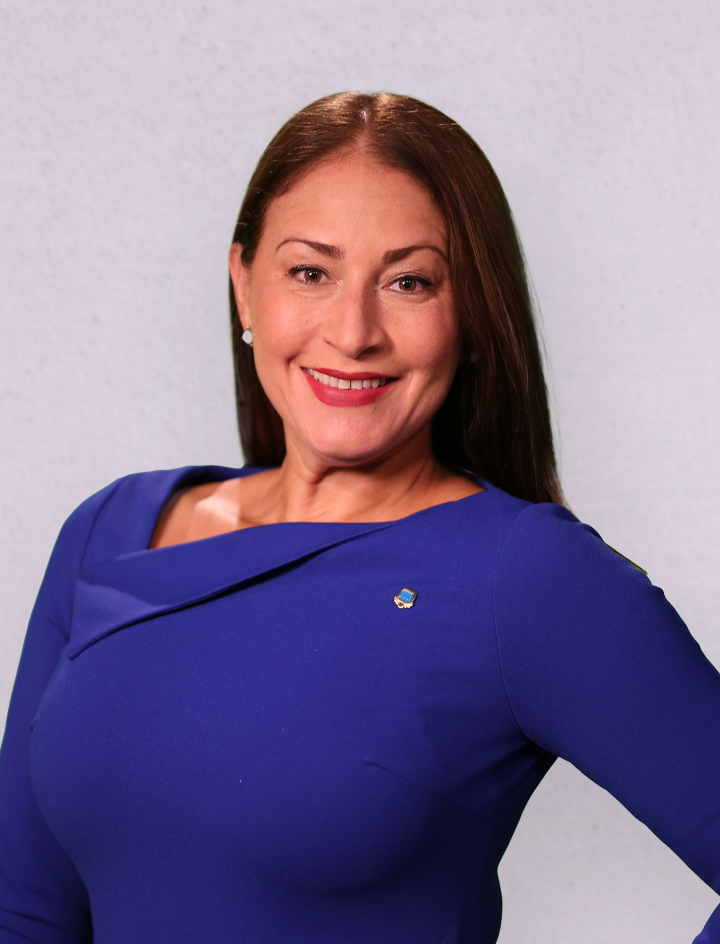Financial Planning Retirement Planning Insights
Strategies to Mitigate the 10-Year Rule

Tuesday, October 29, 2024, from 2:00 p.m. - 3:00 p.m. ET
Join Professor of Practice Jeffrey Levine, CFP®, CPA/PFS, ChFC®, RICP®, CWS, AIF, BFA™ to discuss current categories of beneficiaries and the post-death distribution rules that apply to each group, methods beneficiaries can use to minimize taxes on future distributions, how retirement account owners can proactively help reduce the future tax burden on their beneficiaries, and more.
This webcast is only available in Knowledge Hub+. Log into Knowledge Hub+ via your Learning Hub.
What is Knowledge Hub+?
Knowledge Hub+ is a just-in-time learning and CE platform developed by The American College of Financial Services that curates the wisdom of leading academics, change-makers and innovators, financial planning experts, and practice management leaders into one easy-to-use learning experience for financial professionals.
Knowledge Hub+ delivers the added value of automated reporting of CE credit to the CFP Board and The College’s records, making it easier for financial professionals to fulfill their thirty-hour CE requirements every two years without administrative headaches.
With exclusive live events and new content added quarterly, there’s always something new to learn with Knowledge Hub+.
Diversity, Equity & Inclusion Financial Planning Wealth Management Podcasts
A Deep Dive Into Tax-Informed Planning

In this episode of our Shares podcast, Michael Finke, PhD, CFP® joins one of those thought leaders — Alan Gassman, JD, LLM, AEP® — for an in-depth discussion of tax law and planning, as well as the impacts tax can have on all stages of a client’s life. They examine the connections between taxes and family expenses, small business growth, retirement and legacy planning, and more to show how tax-informed planning can take your practice to the next level.
Alan Gassman, JD, LLM, AEP® is a senior partner at the law firm of Gassman, Crotty, and Denicolo in Clearwater, Florida and an expert in tax law, specializing in the areas of trust and estate planning, taxation, wealth preservation, and the representation of physician and medical practices. Gassman speaks at many tax conferences, national programs, and national and local webinars, and is one of the featured thought leaders in The College’s Tax Planning Certified Professional™ (TPCP™) Program. Gassman is a frequent speaker for continuing education programs and has published well over 200 peer-reviewed articles with publications such as Bloomberg BNA Tax & Accounting, Trusts and Estates Magazine, Estate Planning Magazine, The Florida Bar Journal, Forbes, and Leimberg Information Services Inc. (LISI), as well as many books on tax planning and law. He has also been recognized several times as a top lawyer in the state of Florida and the country by several prestigious industry lists including Who’s Who in American Law and the AV® Preeminent™ Peer Review RatedSM by Martindale-Hubbell®.
Any views or opinions expressed in this podcast are the hosts’ and guests' own and do not necessarily represent those of The American College of Financial Services.
More From The College
- Learn More About Our Tax Planning Certified Professional™ (TPCP™) Program
- Watch the Webinar on How to Integrate Tax Planning Into Your Practice
About The College Financial Planning Tax Planning Press
The College Launches Tax Planning Certification Program

KING OF PRUSSIA, PA – November 4, 2024 – The TPCP™ Program equips financial advisors, tax professionals, and CPAs with the knowledge and tools to develop and implement tax-efficient planning strategies for individuals and business owners. While enrollment is now open, access to the first course (TPCP 101) begins on January 6. The program has already seen nearly 5,000 professionals express interest.
As part of the launch, a live demo with Jeff Levine, CFP®, CPA/PFS, ChFC®, RICP®, CWS, AIF®, BFA™, Professor of Practice in Tax Planning, will be held on Nov. 12, 2024, at 1:30 p.m. ET. Levine, known for distilling complex tax strategies into actionable insights, will guide attendees through the program alongside The College’s academic support team, providing a first look at this new curriculum. You can register here.
“The TPCP™ Program fills a critical gap in financial education by offering advisors practical tools to meet client demands for informed, tax-aware financial strategies,” said George Nichols III, CAP®, president and CEO of The American College of Financial Services. “With the expertise of our faculty, we are thrilled to provide professionals with a credential that brings tax-informed planning to the forefront of comprehensive financial planning.”
The TPCP™ Program focuses on real-world application, covering topics such as tax legislation, retirement tax planning, estate planning, and strategies for individual and business taxation.
“I’m excited to help financial professionals close the knowledge gap in this high-demand area with the launch of The College’s TPCP™ Program,” said Levine. “Tax planning is financial planning, and the TPCP™ provides the first comprehensive, in-depth education on tax strategies that directly align with clients’ goals and needs across their lifetime.”
To enroll in the program, visit TheAmericanCollege.edu/TPCP.
About The American College of Financial Services
Founded in 1927, The American College of Financial Services is the nation’s largest nonprofit educational institution devoted to financial services professionals. Holding the highest level of academic accreditation, The College has educated over 200,000 professionals across the United States through certificate, designation, and graduate degree programs. Its portfolio of applied knowledge also includes just-in-time learning and consumer financial education programs. The College’s faculty represents some of the foremost thought leaders in the financial services profession.
Visit the rest of our site or connect with us on LinkedIn, X, Instagram, Facebook, and YouTube. Discover all the ways you can expand your opportunities with us.
Contacts
Sarah Tremallo
908-967-0381 / Stremallo@jconnelly.com
Jared Trexler
610-526-1268 / Jared.Trexler@theamericancollege.edu
2024 FinServe Network Class

The six new ambassadors bring the group’s total membership to 22 professionals representing a cross-section of leaders and rising stars in financial services. The FinServe Network includes College alumni and dedicated volunteers who represent the uniqueness and diverse landscape of the profession.
“Through valuable connections and the networks derived from those relationships, we are advancing the conversation around what the financial services profession should truly be,” said George Nichols III, CAP®, president and CEO of The American College of Financial Services. “We couldn't be prouder to collaborate with these leaders and look forward to working together to help shape the future of financial services.”
Introducing Our New Ambassadors
The latest group of FinServe ambassadors bring with them a diversity of both geographical locations — stretching from Alaska to Puerto Rico and many places in between — and expertise in fields from retirement and tax planning to small business planning, wealth management, trust and estate planning, and more.
Mónica Clesse, MBA, FPA is the CEO and founder of Clesse Financial Strategies, LLC (CFS), a financial planning firm that specializes in helping clients develop customized retirement income and tax strategies. With 23 years of experience in the financial services industry, she is committed to guiding individuals and families toward financial security and independence. Her expertise spans across comprehensive financial planning, including tax-efficient strategies, retirement planning, and risk management. Clesse is known for her holistic approach, combining technical financial expertise with a deep understanding of her clients’ personal goals and aspirations.
Terrell Dinkins, ChFC®, RICP® is the president and founder of OBN Wealth Advisors, an independent registered investment advisor (RIA) firm that specializes in wealth-building strategies and comprehensive financial planning for women and small business owners. With over a decade of experience as an investment advisor, Dinkins expertly crafts financial roadmaps that help her clients thrive now and in the future. A true advocate for personal finance education, Dinkins is not only a wealth empowerment speaker, but also a best-selling author. Her books, One Bucket at a Time: A Woman’s Guide to Creating Wealth and Secrets of The 800+ Club: How to Raise Your Credit Score, Maintain Good Credit, and Live the Life of Unicorns have become go-to guides for those seeking financial freedom.
Ande Frazier CFP®, CLU®, ChFC®, RICP®, BFA™, ChSNC®, CDFA®, CEPA, CExP is a partner at Peachtree Planning of North Georgia. She began working in the financial industry over 30 years ago, specializing in personal finance and wealth-building for individuals and business owners. Her skills led her to become a prominent speaker and thought leader in the financial services industry. After serving in various leadership positions, including running a multi-million-dollar fintech company, launching a media company focused on women and money, and serving as a vice president of distribution for a large insurance company, Frazier returned to private practice by rejoining Peachtree Planning Corporation, a premiere financial services firm with offices throughout the Southeast and clientele across the country.
Sahar Pouyanrad, EMBA, CTFA, AEP®, CEP®, ChSNC® is an executive director and the West Regional Trust Team Leader for the trusts and estates team for J.P. Morgan Private Bank. In this capacity, she is responsible for oversight and administration of trust accounts and related services for the firm’s fiduciary clients across the West Region, with a primary focus on ultra-high-net-worth families. Pouyanrad collaborates with colleagues across different business lines to deliver robust banking products for wealthy, complex, and multigenerational families. As the head of new business, she is responsible for partnering with legal, compliance, and risk management to drive new business, manage risk by overseeing review of potential trust and estate opportunities, and work with senior leadership to set new business parameters relating to trusts and estates.
Ryan Swenson, RICP® is the chief growth officer and a financial advisor at Cary Stamp & Co. in Tequesta, Florida. Since joining the firm in 2021, Swenson has brought a deep passion for helping others and a wealth of experience to his role. He cites his small-town upbringing in Minnesota for shaping his strong work ethic, energy, and enthusiasm for connecting with people. Swenson’s professional journey took him through various industries before he found his calling in finance. Swenson continues to grow both professionally and personally. He is a participant in The Ensemble Practice G2 Leadership Institute and a proud graduate of Leadership Palm Beach County in 2022. His dedication to leadership and community service underscores his commitment to making a positive impact in the financial world and beyond.
Dave Valdez, ChFC®, CLU®, AAMS®, CWS®, AIF® is the chief operating officer at Alaska Wealth Advisors, where he manages all aspects of the firm’s operations. This includes financial planning, investments, client service, advisor development and recruitment, compliance, and technology. In addition to this role, Valdez serves as the State Deputy Inspector General at Joint Force Headquarters on Joint Base Elmendorf-Richardson, Alaska. His unique combination of military leadership and financial expertise makes him exceptionally qualified to help investors with their financial wellness.
About the FinServe Network
The FinServe Network is a volunteer group that serves as a valuable resource for The College, advocating on behalf of its vast alumni network, providing unique perspectives and expertise on industry trends, and sharing a collective passion for lifelong learning. FinServe ambassadors often help provide a behind-the-scenes preview into the innovative ways The College is growing with the intent of sparking ideas to put forward in their own careers.
Issues such as training, retention, career development, access to financial services, practice management, and more were all discussed during The College’s inaugural FinServe Summit in 2023, and elaborated upon at the 2024 Summit in talks from College staff and special guests. FinServe ambassadors also have unique opportunities to play an active role in promoting College initiatives and receive exclusive opportunities to help them create content that builds their standing as leaders in the profession.
We congratulate the 2024 class of our FinServe Network, and look forward to working with them as we continue our mission to uplift the profession and benefit society.
More From The College
- Meet the Members of Our FinServe Network
- Read our 2024 FinServe Summit Recap
- Browse Our Programs
Philanthropic Planning Insights
Discovering the Realities of Planned Giving

Steven L. Meyer, PhD, author of Personalized Philanthropy: Crash the Fundraising Matrix, recently sat down with Chartered Advisor in Philanthropy® (CAP®) Program Director and Assistant Professor of Philanthropy Jennifer Lehman PhD, JD, CFP®, CAP® to discuss his thoughts on charitable giving and how advisors can deviate from standard ways of thinking to achieve better outcomes.
Escaping the Matrix
Lehman begins her conversation with Meyers by asking him about his inspiration for writing Personalized Philanthropy: Crash the Fundraising Matrix. Meyers responds by saying, “I wanted to share these incredible stories that I had picked up…and the experiences, and along the way I felt that I had kind of redefined the way that I was thinking about philanthropy and fundraising.”
Meyers then goes on to explain his process for writing the book, stating that one of his first challenges was what he would name it. Meyers cites inspiration from the movie The Matrix, stating, “The book and the movie are both about this process…of waking up and…gaining your superpowers as you find your voice, and you find these strategies that will work for you and allow you to thrive in an environment where a lot of people have very difficult times.”
Killer Apps
As their conversation continues, Lehman asks Meyers about his “killer apps.” These personalized plans, according to Meyers, empower all donors to qualify as “major donors,” with far greater impact than they may initially envision.
In reference to the “killer apps,” Meyers states, “Instead of…viewing donors as having just a transactional capacity, you think about them in terms of their total lifetime value.”
Meyers offers his idea of the “philanthropic mortgage” as the best means of visualizing this concept. As he explains, “When you buy a house, you don't have to wait till it's completely fully paid for. You start living there and enjoying the benefit of your house right away. So why can't we think about a gift in that same way, or an endowment in particular?”
When discussing step-up gifts, another of Meyers’ “killer apps,” Lehman points out this option may be favorable to younger donors, stating, “That could work really well for a young professional: somebody early in their career, and it gets that philanthropic mindset going where they are giving a little each year – and then, whether it's every year or every few years, they step it up a little bit.”
Meyers supports this point, sharing a personal anecdote of a young donor being able to see the fruits of his gift realized by giving through a step-up gift plan. Meyers touts this as one of the top benefits of step-up gifts.
Thinking Creatively
After discussing several of these unconventional ideas with Meyers, Lehman points out the importance of thinking creatively in philanthropic giving. She asserts that by approaching donors and expecting them to have cash assets at the point in time the gift is planned, many potential donors can be eliminated from the pool as compared to the amount of donors that may be able to provide gifts through alternative methods, such as virtual endowments and non-cash assets.
Lehman goes on to discuss more creative methods of planning charitable gifts and the concepts behind them. To learn more about these methods of planned giving, the full discussion can be viewed in Knowledge Hub.
More From The College
- Gain philanthropic and legacy planning knowledge with our CAP® Program
- Learn about the American College Center for Philanthropy and Social Impact
Diversity, Equity & Inclusion Financial Planning Wealth Management Podcasts
The Power of Coordinated Planning

In this episode of our Shares podcast, Lindsey Lewis, MBA, CFP®, ChFC® speaks with Padric H.B. Scott, AEP®, CFP®, ChFC®, CLU®, WMCP®, CCFC, CAP®, MSFP, founder and CEO of Crossroads Capital Partners and a member of The College’s FinServe Network and NextGen Advisory Task Force, about his philosophy of coordinated planning. They discuss Scott’s background in the NFL and transition to financial services, as well how he has adapted the strategies of a winning football team to a new approach toward managing client relationships.
Padric H.B. Scott, AEP®, CFP®, ChFC®, CLU®, WMCP®, CCFC, CAP®, MSFP is the president and CEO of Crossroad Capital Partners, where he oversees a team of 10 lady boss associates in the firm and has five advisors in his brokerage unit. In seven years of private wealth practice, he has been named to prestigious lists such as Advisor Today’s Top 4 Under 40 Nationally 2024, The American College of Financial Services’ NextGen Financial Services Professional Award recipient 2023, NAIFA Florida Top 4 Under 40 2023, Northwestern Mutual's Forum, and Forbes Best-In-State Financial Security Professional. He graduated from The College with his Master of Science in Financial Planning (MSFP) degree in December 2023, receiving along the way the CFP® certification as well as the Accredited Estate Planner® (AEP®), and Chartered Advisor in Philanthropy® (CAP®) designations among other planning designation specialties. As a result, he is listed as an estate and business planning specialist in the Northwestern Mutual framework of wealth advisors. He loves his God, family, church, and believes strongly in the motto "Achievement in Every Field of Human Endeavor!"
Any views or opinions expressed in this podcast are the hosts’ and guests' own and do not necessarily represent those of The American College of Financial Services.
More From The College
- Learn About Our CFP® Certification Education Program
- Learn About Our Chartered Advisor in Philanthropy® (CAP®) Program
- Learn About the Accredited Estate Planner® (AEP®) Program
- Learn About Our Master of Science in Financial Planning (MSFP) Degree Program
Author
Subscribe to Newsletter
Related Posts
Donor-Advised Fund (DAF) Professional Certificate Program
Ethics In Financial Services Insights
Azish Filabi Ethical Risks of AI in Financial Services

This Financial Planning article highlights Filabi’s presentation on the ethical concerns of AI in financial services. The concerns include transparency, data privacy, racial bias, and over-reliance on AI-driven tools. Filabi emphasized the importance of human oversight, long-term thinking, and the need for regulatory accountability in AI use. She also discussed how historical biases in data, such as big data used as inputs into AI-enabled underwriting, can lead to unfair discrimination, an issue already being addressed by some state regulators and the NAIC through testing and risk management frameworks.
More from The College
Read on to discover additional insights on Filabi’s presentation!
To learn more about AI in financial services, you can explore further with research from the Center for Ethics in Financial Services.
Ethics In Financial Services Insights
AI Ethics in Financial Services

This panel discussion, led by Kevin Crawford of Northwestern Mutual, highlighted AI’s current impact, its future potential, and the ethical implications tied to its adoption.
Filabi emphasized the importance of managing AI systems ethically and transparently. Drawing from her policy background, she raised concerns about the potential for AI to reinforce faulty data or human biases, warning without proper oversight, AI could lead to significant harm. Filabi illustrated this by questioning the fairness of using AI for underwriting that relies on private data from individuals without their consent, stressing the misuse of AI in such ways could have severe consequences. While recognizing AI’s potential to improve fairness and efficiency, she noted these benefits can only be realized through ethical management.
Ethical Concerns Surrounding AI
Filabi also discussed the potential of generative AI to enhance financial education, particularly for underserved populations, by increasing access to critical knowledge and fostering trust in the financial industry. However, she warned this opportunity comes with ethical responsibilities, as AI systems must be competent and transparent, and misinformation or misuse of personal data could erode trust. Bennetts responded there’s a challenge to maintaining privacy in an era where AI systems often access personal data without user awareness. He expressed concern people have become complacent with these invasions of privacy, accepting them as part of daily life. Bennetts also noted while AI has the potential to serve as an equalizer, it may also deepen inequality if access to technology remains uneven, particularly for those without the resources to understand or use AI effectively.
The Path Forward: Ethical Management of AI
Ludwig echoed these concerns, emphasizing the need for AI literacy. He highlighted professionals and consumers alike must understand how AI operates and where their data is being used. Ludwig pointed out AI's growing complexity could create a divide between those who master the technology and those left behind, reinforcing the need for clear, accessible education on AI systems.
Filabi turned the conversation to regulatory developments, noting states like Colorado have taken first steps with comprehensive AI laws aimed at protecting consumers and ensuring fairness in AI-driven decisions. She stressed the importance of setting clear standards on data quality and transparency to help regulate AI’s impact on financial services.
In her final remarks, Filabi emphasized professionals must remain accountable for their use of AI, even in the absence of robust regulation. While AI holds great promise for advancing fairness and efficiency, its success depends on responsible, transparent management. The panel concluded with the consensus that AI, while a powerful tool, must be approached thoughtfully to ensure that its implementation in financial services serves the greater good and enhances trust in the industry.
More from The College
- To learn more about AI in financial services, you can explore further with research from the Center for Ethics in Financial Services.
- Learn More About Our Center for Military and Veterans Affairs
- Read Our 2024 Military Summit Recap

Mónica Clesse
MBA, FPA